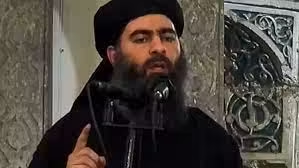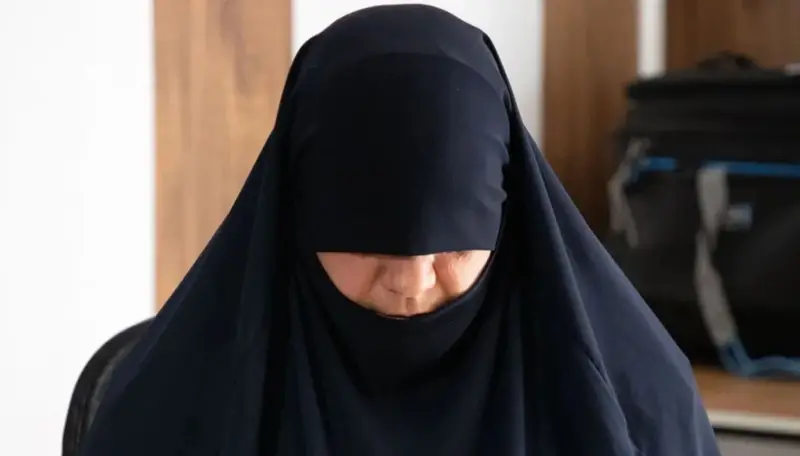In a rare interview from prison, Umm Hudaifa, the widow of Islamic State (IS) leader Abu Bakr al-Baghdadi, has shared her perspective on their life and her husband’s radicalization. She claims that sexual abuse during his detention in a US-run prison played a significant role in turning him into a dangerous terrorist.

Abu Bakr al-Baghdadi, who led IS during its control over large parts of Syria and Iraq, was detained by US forces in 2004. He spent about a year at Camp Bucca, a detention center in southern Iraq. According to Umm Hudaifa, it was during this time that Baghdadi underwent severe psychological changes. “He became short-tempered and prone to outbursts of anger,” she recalls.
She believes he was subjected to sexual torture during his detention. Although Baghdadi never explicitly told her what happened, he hinted at experiences that she “could not understand.” This alleged abuse, she says, marked a turning point in his behavior and beliefs.
Prior to his detention, Baghdadi was described as religious but not extremist. He had completed his studies in Sharia, or Islamic law, at the University of Baghdad and was known to be conservative yet open-minded. However, after his release from Camp Bucca, he became increasingly radical. Umm Hudaifa suggests that the trauma he experienced in detention contributed to this shift.
By 2010, Baghdadi had become the leader of the Islamic State of Iraq, a precursor to IS. Under his leadership, the group declared a caliphate in 2014, enforcing brutal rule over its territories. Umm Hudaifa lived with him in Raqqa, Syria, IS’s stronghold, where she says she was isolated from the world, forbidden from using technology or watching television.
Despite her claims of being a victim who tried to escape Baghdadi’s control, Umm Hudaifa faces serious accusations. Yazidis who were kidnapped and raped by IS fighters accuse her of participating in their enslavement. These allegations stand in stark contrast to her portrayal of herself as a helpless bystander.
During the interview, Umm Hudaifa detailed how Baghdadi’s increasing extremism strained their relationship. She searched his clothes and body for signs of involvement with militant groups and confronted him about his activities. However, her efforts to understand or leave him were thwarted by threats and the need to protect her children.
In 2019, Baghdadi died during a US raid on his hideout in northwestern Syria. He detonated an explosive vest, killing himself and two children, while two of his wives died in a shootout. Umm Hudaifa, who had been living in Turkey under a false name, was arrested in 2018 and extradited to Iraq in February 2024. She remains in prison, awaiting investigation into her role in IS’s crimes.
Her interview offers a glimpse into the personal history behind one of the world’s most notorious terrorists. While the truth of her claims about Baghdadi’s abuse in US detention remains uncertain, it underscores the complex and often hidden factors that can drive individuals towards extremism. As Iraqi authorities continue their investigation, the full extent of Umm Hudaifa’s involvement with IS and her husband’s legacy remains to be seen.


